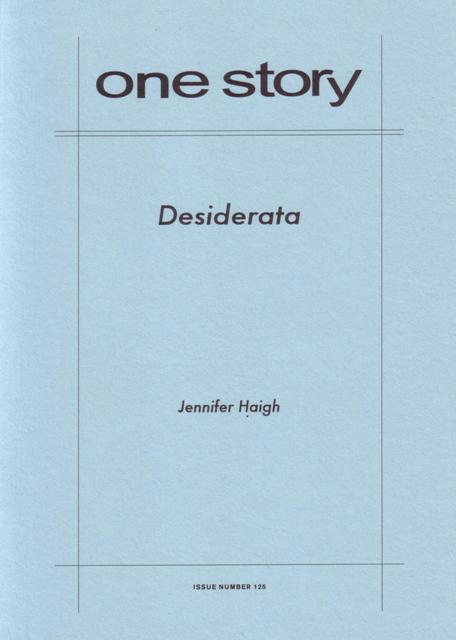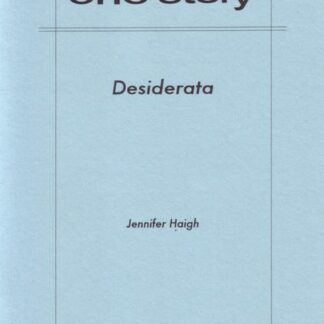
Desiderata
$2.50
88 in stock
Excerpt
Albert Chura is an early riser. Joyce awakens to the buzzing of his lawnmower. The days are getting longer, and already her room is filled with sunlight. Outside, the pale spring leaves have matured into a deep summer green. Ed’s white birches – he planted them along the front edge of the yard — are in full leaf. Once again Joyce has her privacy, after a long winter of feeling exposed.
She dresses and goes downstairs to make coffee. From the front porch she gives Albert a wave. After he finishes he’ll come inside for a cup. He always compliments her coffee, though she knows it’s nothing special. She simply follows the directions on the can. It seems a ridiculous thing to learn at her age, but widowhood is full of such lessons. Ed, who rose before dawn, would have his first cup alone in the dark. He’d put on a fresh pot when he heard Joyce on the stairs.
She sets out milk and sugar for Albert – she takes hers black – as he raps at the back door. “Morning,” he grunts, wiping his work boots on the mat. Albert is seventy-two, the age Ed would have been, and his boots look nearly that old.
Jennifer Haigh
Jennifer Haigh is the author of three novels: The Condition, Baker Towers and Mrs. Kimble. Her fiction has appeared in Granta, Ploughshares, Good Housekeeping and elsewhere. She will be the visiting writer at the University of Massachusetts at Boston in spring 2010.
Q&A by Hannah Tinti
- HT: Where did the idea for this story come from?
- JH: Joyce has been in my head for a long time. She’s one of the principal characters in my second novel, Baker Towers. That novel ends with Joyce in her thirties and pregnant with Rebecca. I have always wondered what became of Joyce and Ed, how their lives unfolded. It was a great pleasure to spend time with them again.
- HT: What was the most challenging aspect of writing this story?
- JH: I wanted “Desiderata” to stand on its own, to feel complete to readers who haven’t read Baker Towers. I needed to convey something of Joyce and Ed’s history without getting bogged down in the past.
- HT: Why did you decide to title this story “Desiderata”? Can you talk a little bit about this poem and its origins?
- JH: “Desiderata” was enormously popular in the sixties and seventies. I have, in fact, seen it printed in more than a few high school yearbooks from that era. It really is a lovely poem, and profound in its way, a compendium of advice on how to pursue the things we all desire: love, success, recognition. It does seem to be addressed to young people, so I think it has a different resonance for Joyce, whose big choices in life are largely behind her. At this stage she’s left to contemplate how those choices turned out.
- HT: The setting of this small town brings so many elements to the story. Why did you choose to place Joyce in this town she grew up in and never escaped?
- JH: It’s a choice I made so long ago that it no longer seems like a choice. The town of Bakerton is the main character in Baker Towers. It shapes the destinies of the whole Novak family: Joyce and her parents, her two sisters and two brothers. Baker Towers opens during World War II, in Bakerton’s boom years. In “Desiderata” you see what became of the town, how it all turned out.
- HT: How long did it take you to complete this story?
- JH: The actual writing took only a few months, which is quick for me. Then again, I started writing Baker Towers in 2001, so I guess I’ve been developing the Joyce character for eight years.
- HT: What are you working on now?
- JH: I’ve been trying for years to finish a story collection. So far it’s eluded me. Every time I finish a new story I find I’ve outgrown one of the old ones. I suspect it will have to be published posthumously.
- HT: What is the best bit of advice about writing you have ever received?
- JH: Write every day. Frank Conroy used to talk about waking every day in the expectation of writing, like a cow waiting to be milked.
